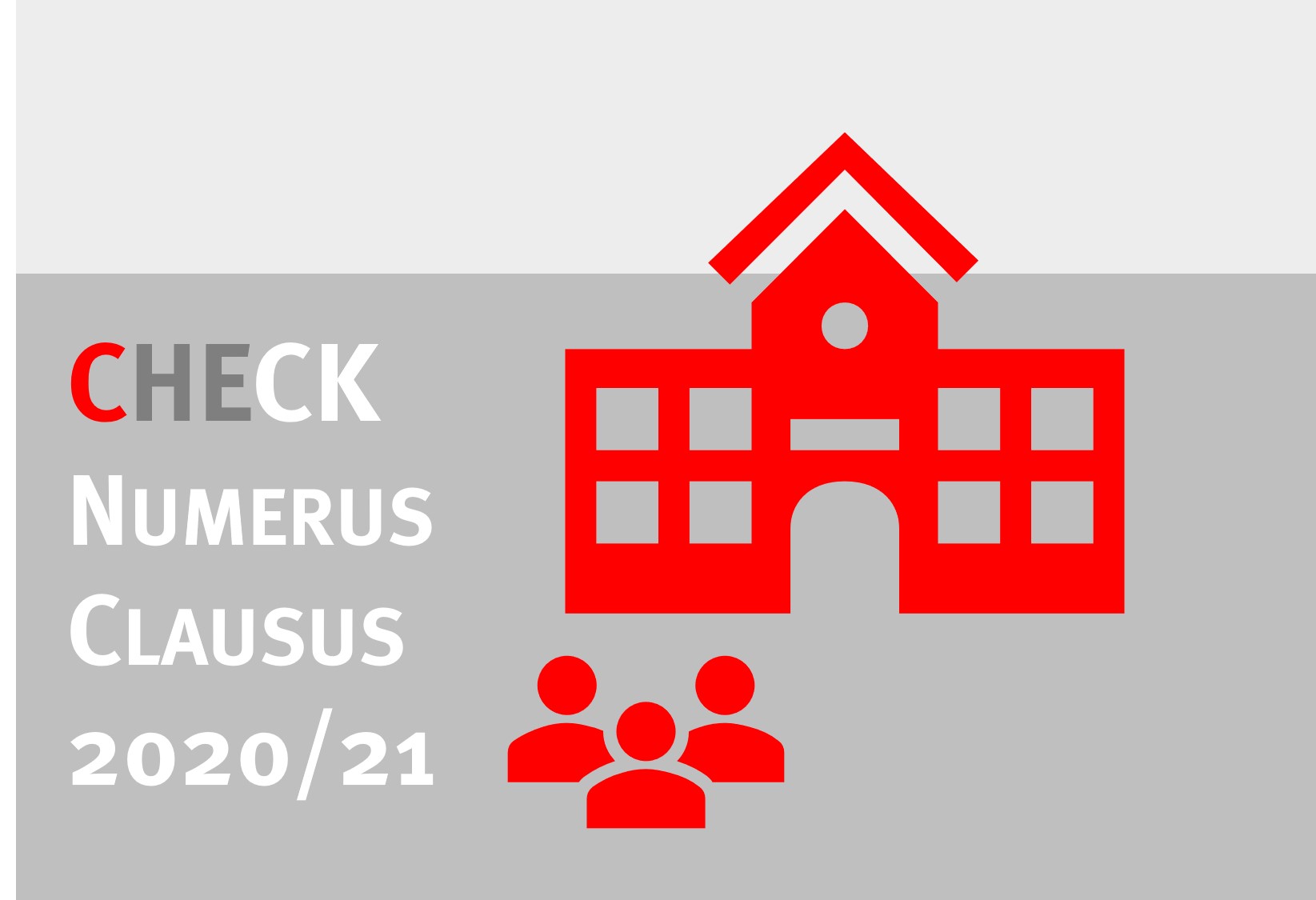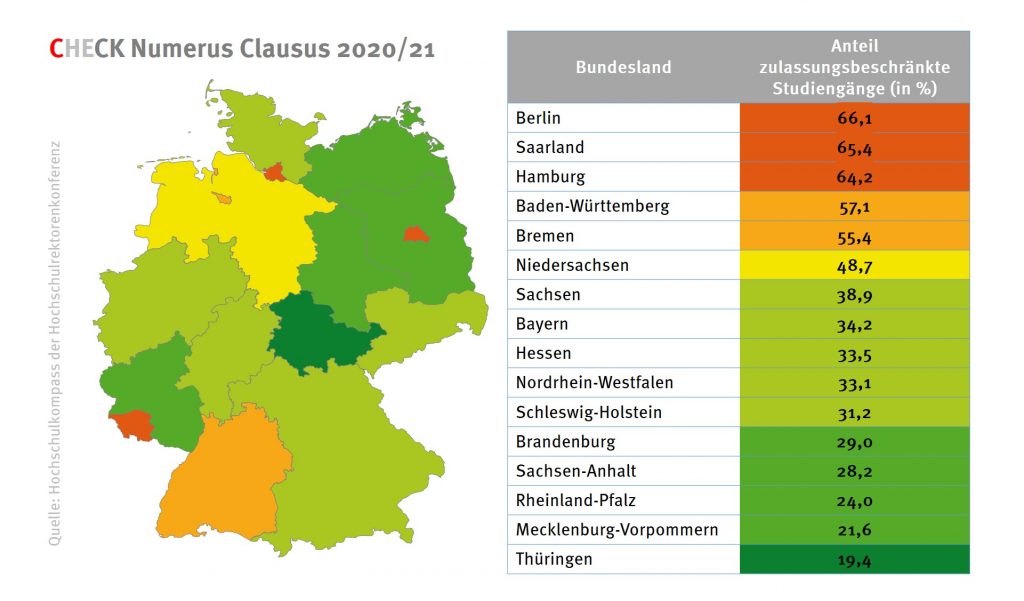
In Berlin, Hamburg and Saarland, two out of three degree programmes are currently subject to restricted admission. Germany’s federal state with the highest rate is Berlin (66.1 per cent), followed by Saarland (65.4 per cent) and Hamburg (64.2 per cent). Thuringia is the federal state where prospective students encounter the lowest barriers due to restricted entry. In this federal state, candidates undergo a selection procedure in only one in five degree programmes (19.4 per cent).
What is striking in this year’s Numerus Clausus CHECK by the CHE is how the federal states have developed differently: while Bremen and Lower Saxony were able to reduce their proportion of NC subjects by 6.2 and 7.5 percentage points respectively, the percentage of degree programmes with restricted admission in Saarland increased from around half (56.8 per cent) to around two-thirds (65.4 per cent).
As a result of these contrasting developments, the national percentage of degree programmes with restricted admission changed only minimally. It fell by 0.1 percentage points compared to the previous year, to the current rate of 40.6 per cent.

“This year, many would-be students have suffered under the unusual Abitur (A-level) conditions brought about by the coronavirus pandemic. So it is certainly good, reassuring news that Abitur examination grades are irrelevant for almost 60 per cent of all degree programmes again this year,” stated CHE Executive Director Frank Ziegele, summarising the current findings. Another positive aspect is that the proportion of programmes subject to restricted admission offered in the city-states of Hamburg, Berlin and Bremen, which are especially popular among first-year students, has fallen compared to the previous year.
Substantial differences can still be seen between cities. Prospective students applying for a place in a university city with a student population of 40,000+ have the best chances in Gießen, where four out of five degree programmes can be pursued by first-year students without having to undergo any additional procedures or tests. The highest rates were in Leipzig and Saarbrücken, where around two-thirds of all degree programmes (65 per cent) have restricted entry.
“It is always worthwhile for prospective students to take a broader view and to look at higher education institutions beyond federal state boundaries. There are often comparable alternatives without restricted admission, even at neighbouring universities,” advised Cort-Denis Hachmeister, author of the study. In Saarbrücken, for example, he reported that the proportion of NC subjects was around 65 per cent, whereas it was only 8 per cent in Trier and Kaiserslautern, cities that are only 60 kilometres from Saarbrücken.
The proportion of programmes with restricted admission varies considerably depending on the subject, the type of higher education institution, and the type of degree: nationwide, about one in two degree programmes in the fields of Law, Economics, Social Sciences and Humanities are subject to restricted entry. In contrast, first-year students are free to enter more than 60 per cent of Mathematics and Natural Science programmes, regardless of their Abitur grades.
The percentage of degree programmes subject to restricted admission at universities (37.2 per cent) continues to be lower than that at universities of applied sciences (45 per cent). The proportion of NC subjects is slightly higher for Bachelor programmes (42 per cent) than for Master’s programmes (38.8 per cent).
About the publication
The “Numerus Clausus CHECK at German higher education institutions 2020/21” is based on NC data contained in the Higher Education Compass of the German Rectors’ Conference for around 20,400 degree programmes in winter semester 2020/21, as well as relevant data from previous years. Percentages for the federal states were determined with reference to the federal state in which the higher education institution was based. In the case of location-specific NC figures, all degree programmes offered at the study location are counted. This means that, in the case of city-states, there may be minor deviations between the percentage in the federal state and that in the city. The federal state, type of higher education institution, degree type and group of subjects were used as criteria for the analysis conducted by the authors Anna Gehlke, Cort-Denis Hachmeister and Lars Hüning.
The publication is only available in German
